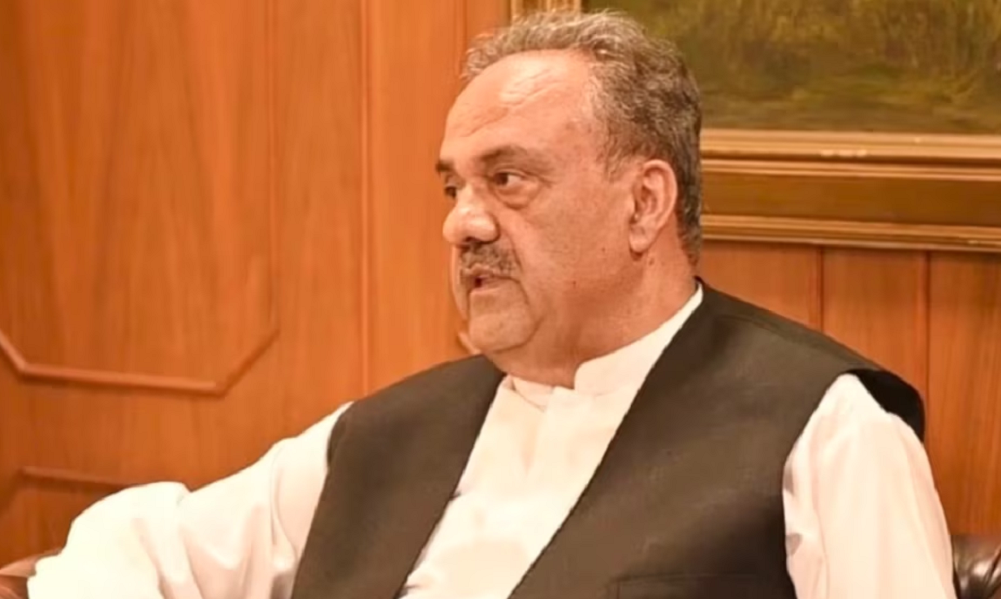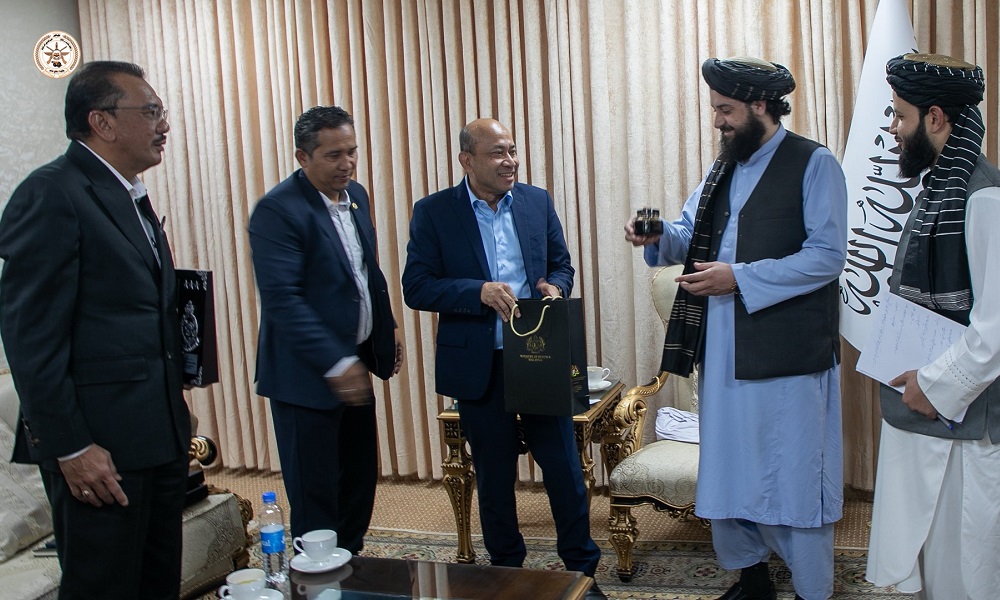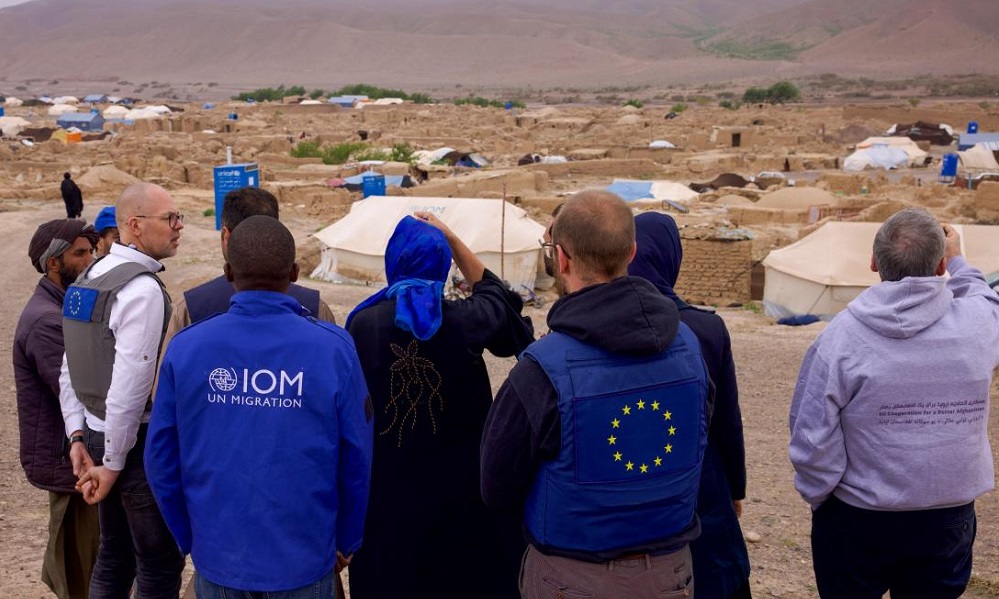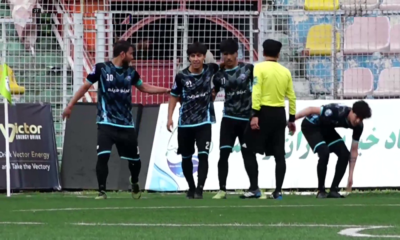Latest News
Pakistan cautiously lauds IEA’s moves to counter terrorism

Pakistan is optimistic the Islamic Emirate of Afghanistan (IEA) will effectively combat cross-border terrorism to emulate the kind of cooperation that U.S. President Joe Biden recently hinted at between the IEA and Washington, a senior diplomat said Saturday.
Asif Durrani, Pakistan’s special representative for Afghanistan, told VOA in an interview that the IEA had recently initiated certain moves to address his country’s cross-border terror concerns and those of other neighbors, including China. But it is premature to speculate on the outcome, he cautioned.
Pakistan says it has experienced a dramatic surge in terrorist attacks since the IEA returned to power in Kabul nearly two years ago.
Islamabad maintains the attacks are being orchestrated by Afghanistan-based fugitive leaders and fighters of the Tehrik-i-Taliban Pakistan, or TTP.
“It’s a serious issue. But steps are being taken to neutralize the TTP. We should also understand that it will take a while, but the process has been initiated,” Durrani said, referring to the issue of Pakistani refugees being moved away from Afghan areas bordering Pakistan.
“That is a step the Afghan government is taking, so we have to wait and see the results. It is now in the initial stages, so it would be too early to comment,” said the Pakistan envoy. “But if this relocation of TTP can actually happen and lead to peace along our borders, it would be a significant development and we would welcome it,” Durrani added.
He said Islamabad had opened talks with fugitive TTP leaders at the request of the IEA to persuade them to cease violence, but the process broke down last year over “ridiculous” demands by the militants.
“Pakistan has exhausted the dialogue option; for them, the only way is to surrender and face the law,” Durrani said. He added that Pakistani military operations had deprived the TTP of any territorial control and their relocation from border areas suggests they have now also become a “liability” for the IEA.”Comparatively, Afghanistan is now very peaceful but there are pockets of TTP, ETIM, and other groups that are a source of concern. Both Pakistan and China hope that the Afghan government will take practical measures,” Durrani said.
“As President Biden has also alluded to the cooperation, which Afghan Taliban (IEA) and American authorities have had in taking counterterrorism measures, the same expectation we have, and the process has started. Hopefully, we will have some positive results in the near future,” Durrani told VOA.
Durrani insisted that dialogue and continued international engagement with the IEA is the only way to reinforce the positive trends and address the continuing challenges in Afghanistan.
“Staying aloof or not engaging the Taliban (IEA), who are in power in Kabul right now, would not help. There is a realization, which is why the U.S. president and others have praised certain steps the Taliban (IEA) have taken, including eradicating poppy,” Durrani said. “Hopefully, other pending issues such as inclusivity, or for that matter, girls’ education or women’s employment, would also be addressed amicably.”
Latest News
Tripartite trade meeting held in Kabul to boost regional connectivity

A tripartite meeting between the delegations of Afghanistan, Turkmenistan and Kazakhstan was held in Kabul with the aim of connecting North Asia to South Asia and reducing transit and transportation costs among these three countries, the Ministry of Trade and Commerce said in a statement.
In this meeting, an agreement was reached on the creation of a joint technical committee to continue the talks.
This tripartite meeting was held under the leadership of Nooruddin Azizi, the Acting Minister of Industry and Commerce, Vice President of Turkmenistan and Srik Zhumangarin, the Deputy Prime Minister of Kazakhstan.
Earlier, a bilateral meeting was held between the delegation of the Islamic Emirate and Turkmenistan. The ministry of commerce said the participants of the meeting discussed the construction of a large joint logistics center in Torghondi, the trilateral transit agreement between the IEA, Turkmenistan, and Kazakhstan, the expansion of Afghanistan’s railway, solving issues related to Afghan transit and export goods, and a number of other commercial issues.
Latest News
No destructive groups including Daesh present in Afghanistan: Yaqub Mujahid

Acting Minister of National Defense Mohammad Yaqub Mujahid has said that no destructive groups including Daesh have physical presence in Afghanistan, adding the Islamic Emirate of Afghanistan (IEA) will not allow anyone to pose threat to any country in the region from the Afghan soil.
Mujahid made the remarks in a meeting with a delegation from Malaysia in Kabul on Thursday.
According to a statement released by the Ministry of Defense, Mujahid highlighted Malaysia’s “good treatment” of Afghan refugees and its long-standing relations with Afghanistan, and said that Malaysia is a powerful Islamic country and visits should increase.
He added that with the establishment of the Islamic Emirate, occupation and war ended in Afghanistan, and the country is fully secure.
Based on the statement, the Malaysian delegation called Afghanistan a friendly country and while emphasizing on comprehensive cooperation, it assured that what they have seen in Afghanistan will be shared with the authorities of their country.
Latest News
EU allocates 17 million euros to support Afghans on the move

The European Union signed an agreement worth 17 million euros with the International Organization for Migration (IOM) to improve access to basic services, increased economic opportunities and protection for Afghans on the move and their host communities in Afghanistan.
The needs of women and girls are a particular focus of the programme, EU said in a statement released on Thursday.
The statement noted that from January 2023 until April 2024, over 1.5 million Afghans returned from Pakistan and Iran.
“I am deeply moved by the hardship returnees face when being deported to Afghanistan. In a country suffering from poverty and climate change, and in a city that just saw devastating earthquakes, this truly is a crisis within a crisis.”, said Peteris Ustubs, Director for the Middle East, Asia and Pacific of the European Commission’s Department for International Partnerships during the signing ceremony at the IOM transit centre in Herat.
Raffaella Iodice, EU Chargée d’Affaires a.i. to Afghanistan, added “The solidarity of the Afghan people towards their brothers and sisters is an inspiration. We must assure that communities hosting and helping new arrivals are supported. The partnership with IOM ensures access to essential services and provides protection for Afghan returnees and their host communities. As women and girls can be particularly affected, we make sure that all members of society can benefit”.
“IOM’s continued partnership with the EU has been critical in enabling our teams to reach hundreds of thousands of Afghan returnees and other vulnerable communities in the country”, said IOM Afghanistan Chief of Mission, Maria Moita. “Thanks to this renewed commitment, we will be able to focus on addressing the immense challenges in the areas of return and contribute to reintegration, social cohesion, and longer-term solutions for those communities.”
This additional contribution is part of a 5-year programme that is being implemented across Afghanistan and in four countries in the region. It builds on the EU’s previous support to IOM to improve the wellbeing of Afghans forced to return to the country, EU said.
-

 Latest News3 days ago
Latest News3 days agoRashid Khan named AWCC’s brand ambassador
-

 Regional4 days ago
Regional4 days agoIranian president lands in Pakistan for three-day visit to mend ties
-

 Sport4 days ago
Sport4 days agoKolkata beat Bengaluru by one run in IPL as Kohli fumes at dismissal
-

 Sport5 days ago
Sport5 days agoACL: Aino Mina 3-0 Istiqlal Kabul; Attack Energy 3-0 Khadim
-

 Climate Change4 days ago
Climate Change4 days agoRescuers race to reach those trapped by floods in China’s Guangdong
-

 World3 days ago
World3 days agoMalaysian navy helicopters collide in mid-air, 10 killed
-

 Sport3 days ago
Sport3 days agoJaiswal ton powers Rajasthan to big IPL win
-

 Sport4 days ago
Sport4 days agoMawj Sahil player scores stunning halfway line goal in 1-0 win over Jawanan Wahedi
























